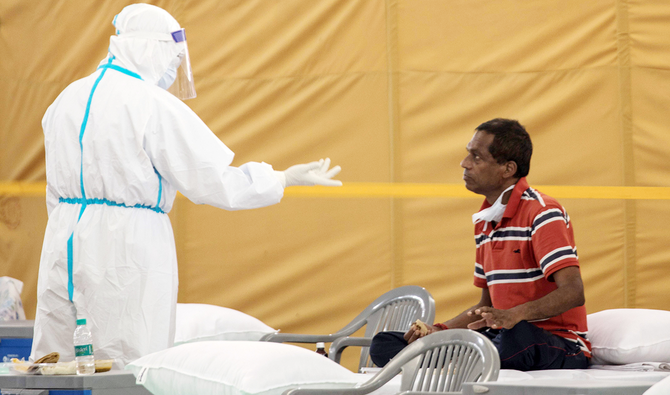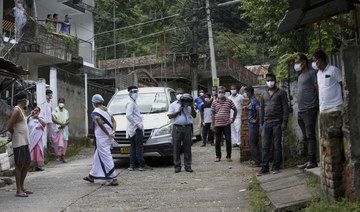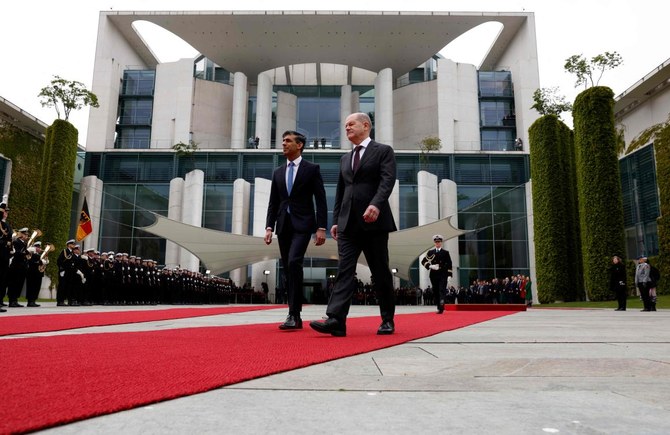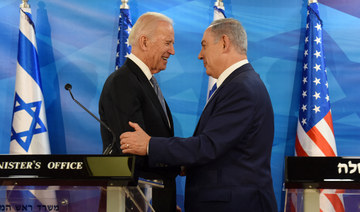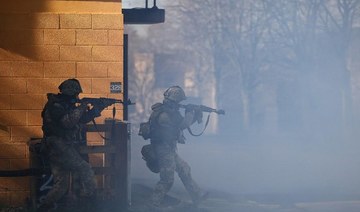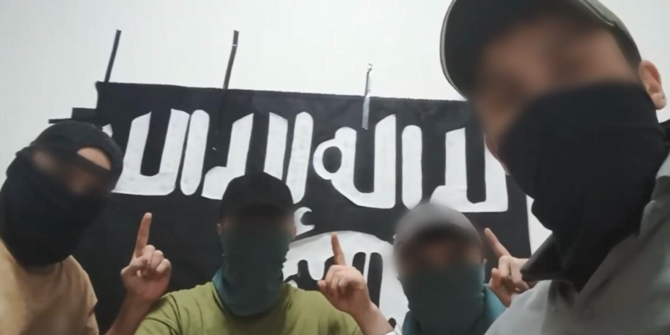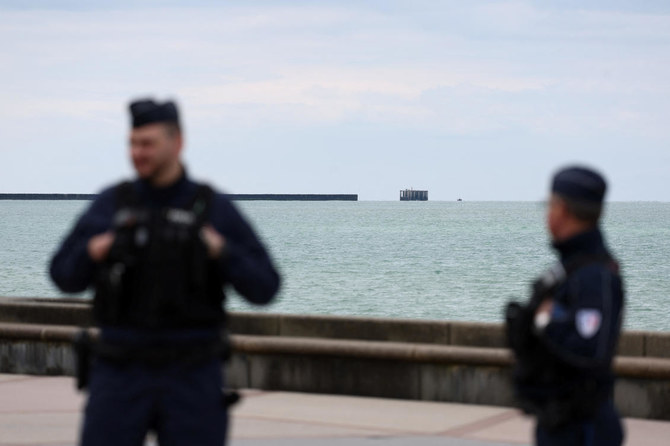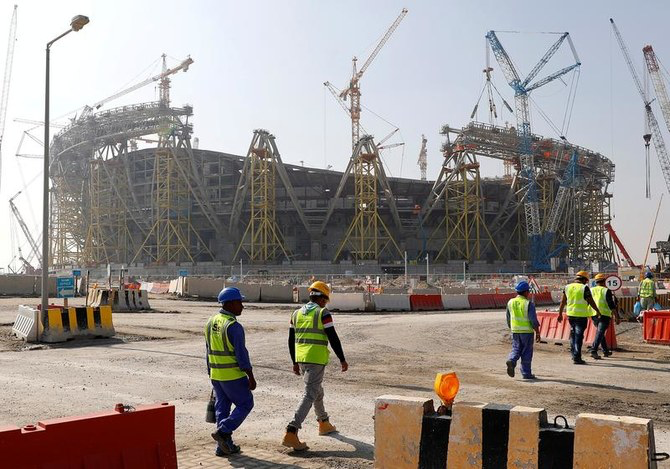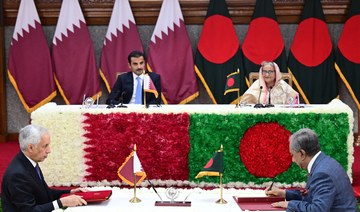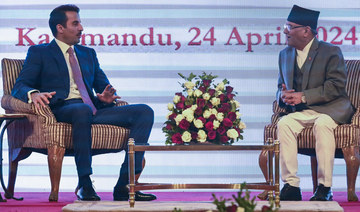NEW DELHI: The death of an expectant mom and her unborn child after 13 hospitals in one day refused to treat her has put India’s strained health care system under the spotlight.
The devastated husband and 6-year-old child of eight-month pregnant Neelam Singh, 30, are still struggling to come to terms with the “unwarranted loss” a month after her agonizing death in an ambulance outside a hospital in New Delhi.
With more than 100,000 coronavirus disease (COVID-19) cases in the Indian capital, Singh became another victim of a health system battling to cope with patient demand due to a lack of bed space and infrastructure.
That, however, has been little comfort for her family members who said they would never be able to overcome the trauma.
“Those 12 hours were the most traumatic experience of our lives, and we have to live with that trauma,” Shailendra Kumar, Singh’s brother-in-law, told Arab News on Tuesday. Singh had developed complications with her pregnancy on June 5, and Kumar said she was rushed to the same hospital in Noida, Uttar Pradesh where she had been going for regular checkups, but was turned away.
“Shivalik (hospital) gave no reason for refusing to admit her. Despite our pleadings, the hospital did not budge from its stand,” Kumar added.
A day-long ordeal ensued, with one hospital after the other unable to treat her. Eventually, she died in an ambulance some 35 kilometers away from her home in Khoda.
“I took her to 13 hospitals, both government and private facilities, and every one refused to admit her. The image of her writhing in pain will always haunt me,” said Kumar, who was accompanied by Singh’s husband. He added that the reasons provided varied from “high costs” to a lack of facilities.
“One hospital told me that I could not pay the high cost so better try my luck somewhere else. At Sharda Hospital in Greater Noida, I was asked to buy a coupon for COVID-19 treatment for 4,500 rupees ($60), which I did, but still, they refused her entry. It was not the loss of one life but two lives,” he said, referring to her unborn child.
He pointed out that the entire family was in a state of shock following her death with her husband “the worst impacted.”
Kumar filed a complaint against Shivalik and other hospitals but said so far “no action has been taken.”
A day after Singh’s death, the district magistrate of Gautam Buddh Nagar, which Noida falls under, ordered an inquiry and issued instructions for all hospitals “to admit patients regardless of the nature of the case.”
However, 20 days later, on June 26, a similar incident was reported in the Dadri area of Noida.
On that occasion, 21-year-old Robin Bhati had developed a fever, and relatives had taken him to a nearby hospital where a week earlier he had been admitted suffering from influenza. However, the hospital refused to admit him and referred him to a different facility.
Five hours and four hospitals later, a city hospital agreed to take him in, but by then Bhati was already seriously ill and hours later he died after suffering a heart attack.
“We don’t know whether he was a COVID-19 patient or not, but why should hospitals refuse to admit a patient in need of immediate attention,” his uncle Jasveer Bhati told Arab News. A number of the Noida hospitals which allegedly denied admission to Singh and Bhati refused to comment on the cases.
In a statement on Monday, the office of Noida’s chief medical officer said: “Strict instructions have been given to all the private and government hospitals to admit all patients showing COVID-19 symptoms.”
Dr. Loveleen Mangla, a pulmonologist working with Noida-based Metro Hospital and Heart Institute, said: “The government did not prepare itself to face this situation. Now the government is trying to create extra beds and medical facilities, but it’s late. They should have done this three months ago when the nationwide lockdown started.
“With the entire medical infrastructure overstretched and not many quality health workers available in the government hospitals, it’s a grim scenario now,” Mangla added.
With more than 723,000 COVID-19 cases on Tuesday, India is now the world’s third worst-affected country after the US and Brazil, with approaching 21,000 people losing their lives.
And the problem is not unique to northern India.
On Saturday, the southern Indian city of Bangalore reported the case of 50-year-old Vasantha, who was rejected by 13 hospitals before she was accepted by the K.C. General Hospital where she eventually died.
Lalitha, a relative of Vasantha, said: “Some hospitals said they didn’t have beds; some said they didn’t have COVID-19 testing facilities, and that way we lost critical hours. She died because of a problem with her respiratory system.”
Experts have questioned whether health care facilities in India are being overstretched purely due to the COVID-19 pandemic.
Dr. Anant Bhan, a Delhi-based independent researcher in global health, policy and bioethics, said: “Is there a real shortage of beds or is it the shortage caused by lack of efficient management? If the cases increase further, we might find it difficult to provide care.”



